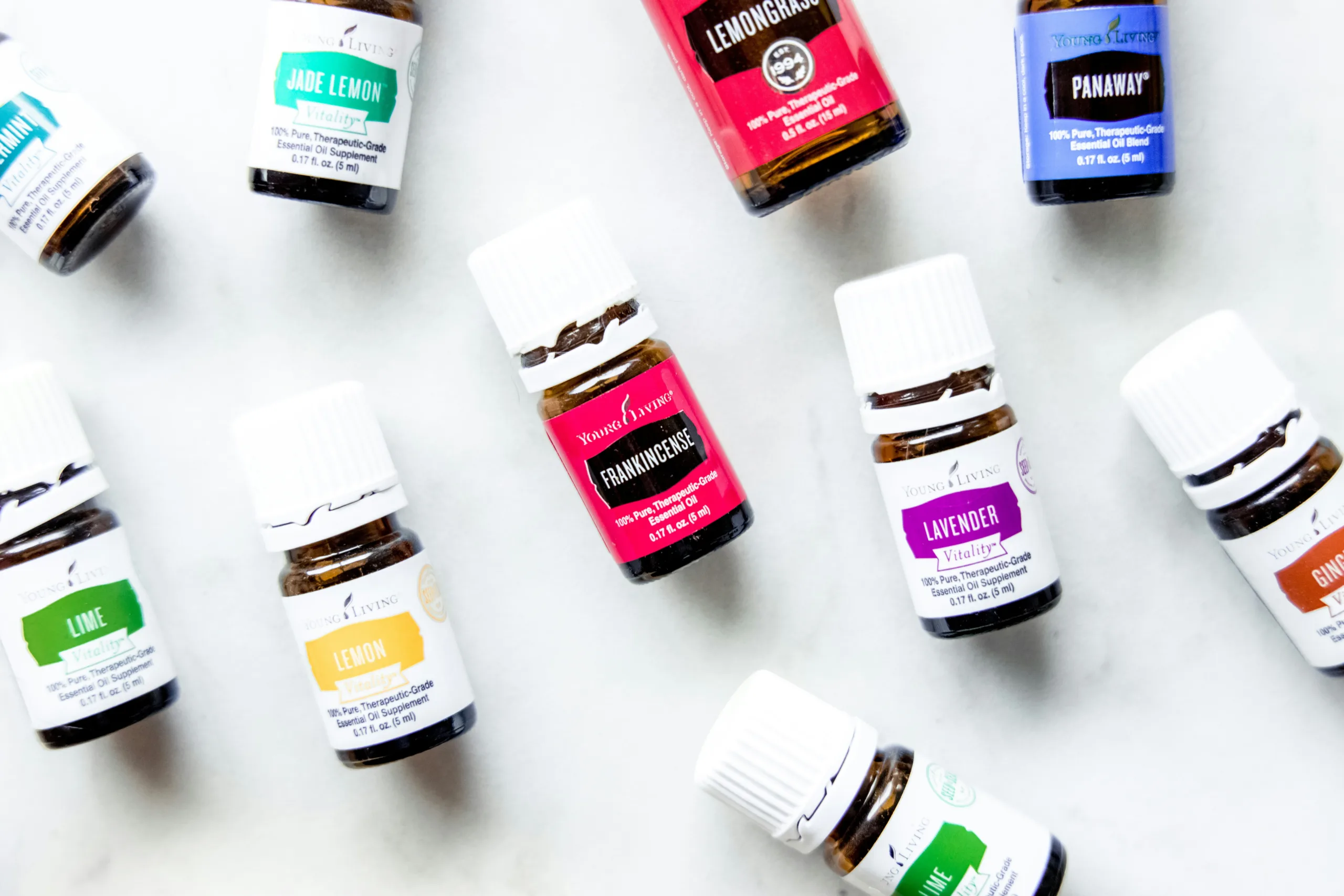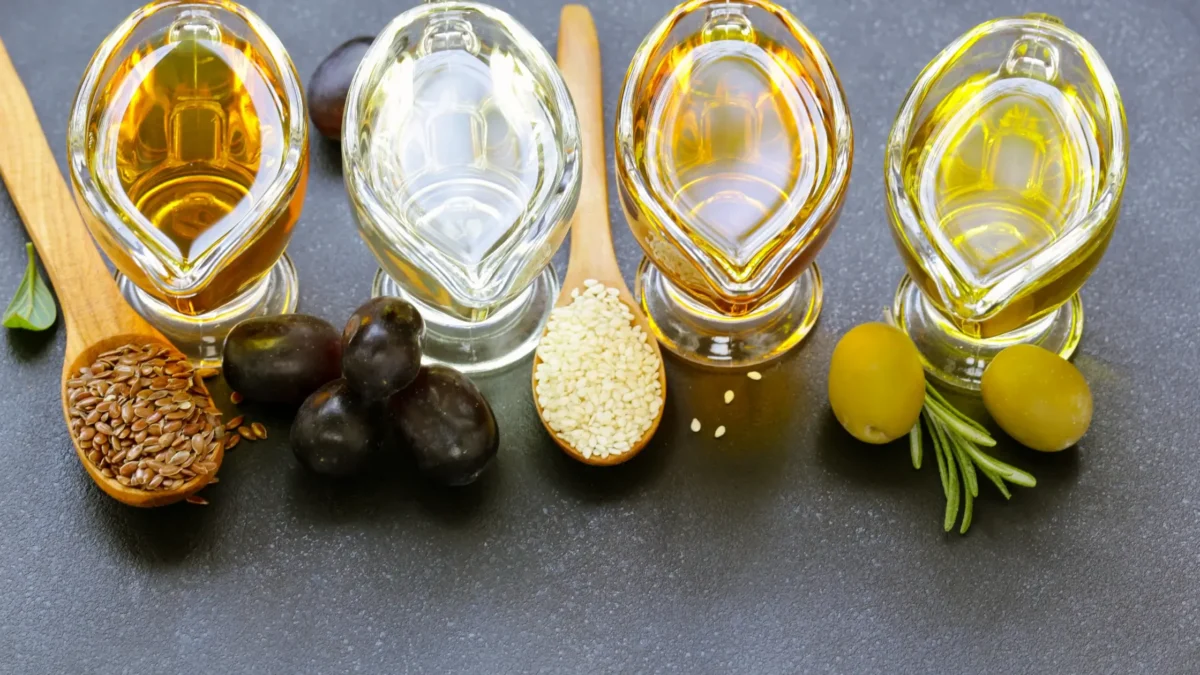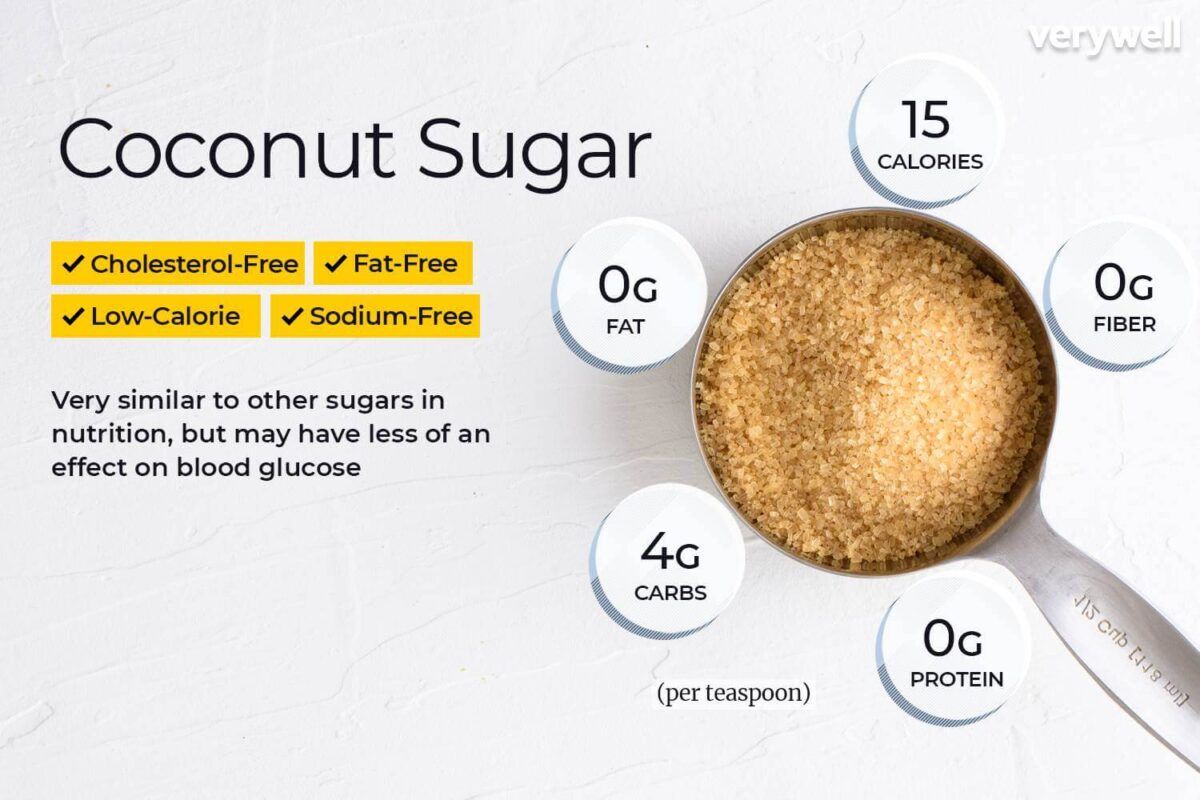Introduction to Carrier Oils
What Are Carrier Oils?
Carrier oils are natural oils extracted from the fatty portions of plants, typically from seeds, kernels, or nuts. Unlike essential oils, carrier oils do not evaporate or possess a strong aroma, making them the perfect medium for diluting essential oils and “carrying” them to the skin. They play a crucial role in aromatherapy and skincare, offering moisturizing, nourishing, and therapeutic properties.
Importance of Carrier Oils in Aromatherapy
In aromatherapy, carrier oils are used to dilute essential oils, ensuring they are safe for topical application. They help in delivering essential oils’ therapeutic benefits while preventing skin irritation. Carrier oils also provide their unique benefits, enhancing the overall effectiveness of the blend.
Table of Contents
Top Carrier Oils and Their Unique Benefits
Jojoba Oil: Nature’s Moisturizer
Jojoba oil, derived from the seeds of the jojoba plant, is renowned for its moisturizing properties. It closely resembles the natural sebum of the skin, making it ideal for all skin types. It helps in balancing oil production, soothing dry skin, and promoting a healthy complexion.
Sweet Almond Oil: Skin Soother and Softener
Rich in vitamins A, E, and fatty acids, sweet almond oil is excellent for softening and soothing the skin. It is especially beneficial for dry, irritated, or sensitive skin. It absorbs quickly, leaving the skin feeling smooth and hydrated.
Coconut Oil: The Versatile All-Rounder
Coconut oil is a versatile carrier oil known for its deep moisturizing capabilities. It is solid at room temperature but melts upon contact with the skin. Coconut oil is perfect for nourishing the hair, moisturizing the skin, and even for oil-pulling in oral care routines.
Also Read: Unlock the Secret Benefits of Rosemary Essential Oil!
Argan Oil: Liquid Gold for Hair and Skin
Argan oil, often referred to as “liquid gold,” is packed with antioxidants, vitamins E and A, and essential fatty acids. It is highly effective in hydrating and softening the skin, reducing fine lines, and improving skin elasticity. It is also a popular choice for strengthening and conditioning hair.
Avocado Oil: Nutrient-Rich and Healing
Extracted from the flesh of avocados, avocado oil is rich in vitamins A, D, and E, as well as fatty acids. It is deeply penetrating and highly moisturizing, making it perfect for dry, damaged, or aging skin. Its anti-inflammatory properties help in healing and soothing skin irritations.
Also Read: Avocado Oil Substitute: 15 Best Alternatives for Your Cooking Needs
Grapeseed Oil: Lightweight and Antioxidant-Rich
Grapeseed oil is a light, non-greasy oil that is easily absorbed by the skin. It is rich in antioxidants and vitamins, which help in protecting the skin from free radicals and environmental damage. It is ideal for oily or acne-prone skin due to its astringent properties.
Olive Oil: Ancient Beauty Secret
Olive oil has been used for centuries for its nourishing and moisturizing properties. Rich in antioxidants and vitamins, it helps in hydrating the skin, reducing signs of aging, and promoting a healthy glow. It is also beneficial for dry, damaged hair.
Rosehip Oil: Anti-Aging Powerhouse
Rosehip oil is extracted from the seeds of wild rose bushes and is rich in essential fatty acids and vitamins A and C. It is renowned for its anti-aging benefits, helping to reduce the appearance of scars, fine lines, and pigmentation while promoting skin regeneration.
Hemp Seed Oil: Balancing and Nourishing
Hemp seed oil is rich in omega-3 and omega-6 fatty acids, making it highly nourishing and moisturizing. It helps in balancing oil production, making it suitable for both dry and oily skin types. Its anti-inflammatory properties are beneficial for soothing irritated skin.
Sunflower Oil: Gentle and Hydrating
Sunflower oil is a light, non-greasy oil that is easily absorbed by the skin. It is rich in vitamins A, D, and E, as well as fatty acids. It helps in retaining moisture, soothing dry skin, and promoting a smooth, soft complexion.
How to Choose the Right Carrier Oil for Your Needs
Skin Type Considerations
Selecting the right carrier oil depends on your skin type. For dry skin, oils like avocado, olive, and coconut are deeply moisturizing. For oily or acne-prone skin, lightweight oils like grapeseed or hemp seed oil are ideal. Sensitive skin benefits from gentle oils like sweet almond and sunflower oil.
Hair Type and Concerns
Different carrier oils cater to various hair types and concerns. Argan and coconut oil are excellent for dry or damaged hair, providing deep conditioning and repair. Jojoba oil helps in balancing oil production in the scalp, making it suitable for oily hair.
Specific Skin Conditions and Treatments
Carrier oils can address specific skin conditions. For anti-aging, rosehip and argan oils are highly effective. Hemp seed oil is beneficial for soothing eczema or psoriasis. Jojoba and grapeseed oils are great for managing acne due to their non-comedogenic properties.
How to Use Carrier Oils Effectively
Mixing Carrier Oils with Essential Oils
When using carrier oils with essential oils, it is crucial to follow proper dilution guidelines. Typically, a 2-3% dilution rate is safe for most topical applications. This means adding 12-18 drops of essential oil to 1 ounce (30 ml) of carrier oil.
Carrier Oils in Skincare Routines
Incorporate carrier oils into your daily skincare routine by using them as moisturizers, makeup removers, or facial serums. Apply a few drops to clean, damp skin to lock in moisture and nourish the skin.
Carrier Oils for Hair Care
Use carrier oils as hair masks or leave-in treatments. Apply coconut or argan oil to the scalp and hair, leave it on for at least 30 minutes, and then wash it out for deep conditioning and repair.
Carrier Oils in Massage Therapy
Carrier oils are widely used in massage therapy for their smooth glide and skin benefits. Blend with essential oils to create custom massage oils that not only relax muscles but also nourish the skin.
Also Read: Cooking Oil Alternatives: Healthy and Tasty Options for Your Kitchen
DIY Recipes Using Carrier Oils
Homemade Facial Serums
Create your facial serum by blending carrier oils like rosehip and jojoba oil with a few drops of essential oils like lavender or frankincense. Apply nightly for rejuvenated skin.
DIY Hair Masks
Mix coconut oil with avocado oil and a few drops of rosemary essential oil for a nourishing hair mask. Apply to damp hair, leave it on for 30 minutes, and rinse thoroughly.
Custom Massage Oils
Blend sweet almond oil with a few drops of eucalyptus or peppermint essential oil for a soothing massage oil that relieves muscle tension and promotes relaxation.
Natural Body Lotions and Creams
Create a hydrating body lotion by mixing shea butter with sunflower oil and a few drops of your favorite essential oils. Whip until smooth and store in a glass jar.
Safety Tips and Precautions
Patch Testing for Allergies
Always perform a patch test before using a new carrier oil or essential oil blend. Apply a small amount to the inside of your wrist or elbow and wait 24 hours to check for any adverse reactions.
Proper Storage of Carrier Oils
Store carrier oils in a cool, dark place to prevent them from going rancid. Use dark glass bottles to protect them from light and ensure they remain effective for longer.
Understanding Shelf Life and Expiration Dates
Be aware of the shelf life of each carrier oil, as it can vary. Most carrier oils have a shelf life of 1-2 years, but oils like flaxseed and hemp seed may have shorter lifespans and should be refrigerated.
Sustainability and Ethical Considerations
Sourcing Organic and Fair-Trade Carrier Oils
Opt for organic and fair-trade carrier oils to ensure you are using products that are free from pesticides and ethically produced. This supports sustainable farming practices and fair wages for workers.
Environmental Impact of Carrier Oil Production
Consider the environmental impact of carrier oil production. Choose brands that use sustainable farming methods and environmentally friendly extraction processes.
Supporting Sustainable Brands
Support brands that prioritize sustainability and ethical practices. Look for certifications such as USDA Organic, Fair Trade, and Leaping Bunny to ensure you are making eco-conscious choices.
Frequently Asked Questions About Carrier Oils
Can Carrier Oils Be Used Alone?
Yes, carrier oils can be used alone as moisturizers, makeup removers, or hair treatments. They offer numerous benefits on their own and can be a simple addition to your skincare and haircare routine.
What Are the Best Carrier Oils for Sensitive Skin?
Gentle oils like sweet almond, sunflower, and jojoba oil are ideal for sensitive skin. They are soothing, non-irritating, and help in maintaining skin health without causing reactions.
How to Store Carrier Oils for Maximum Freshness?
Store carrier oils in a cool, dark place, preferably in dark glass bottles. Keep them away from direct sunlight and heat sources to maintain their freshness and potency.
Expert Tips for Incorporating Carrier Oils into Your Routine
Professional Advice from Dermatologists
Dermatologists recommend using carrier oils that match your skin type and concerns. They also advise starting with a patch test and using small amounts to avoid overloading the skin.
Best Practices from Aromatherapists
Aromatherapists suggest blending carrier oils with essential oils to enhance their therapeutic benefits. They emphasize the importance of proper dilution and choosing the right carrier oil for your specific needs.
User Testimonials and Success Stories
Many users have shared their success stories with carrier oils, noting improvements in skin hydration, reduced acne, and healthier hair. Personal experiences highlight the versatility and effectiveness of carrier oils.
Conclusion: Embracing the Benefits of Carrier Oils
Carrier oils offer a myriad of benefits for the skin, hair, and overall wellness. By understanding their unique properties and how to use them effectively, you can incorporate these natural oils into your daily routine for enhanced beauty and health.
Further Reading and Resources
Books on Carrier Oils and Aromatherapy
- “The Complete Book of Essential Oils and Aromatherapy” by Valerie Ann Worwood
- “Carrier Oils for Aromatherapy and Massage” by Len Price
Online Courses and Workshops
- Aromatherapy courses on Udemy
- Workshops by the National Association for Holistic Aromatherapy (NAHA)
Trusted Brands and Where to Buy

Shweta Deshmukh Sagvekar is a female food blogger based in Mumbai, India. She writes for Manvik foods, an Amazon affiliate website that sells a variety of groceries, spices, and dry fruits. In addition to her work for the brand, Shweta also writes on her own food blog, where she shares recipes and insights into the culinary world.
Through Manvikfoods’ online webstore, Shweta is able to share her passion for food with people from all over the world. Her writing is characterized by its engaging style and attention to detail, and she has a talent for creating recipes that are both delicious and easy to follow.
Whether she is exploring the latest culinary trends or revisiting classic recipes, Shweta’s love for food shines through in everything she writes. Her work is a testament to the power of good food to bring people together and create lasting memories.




